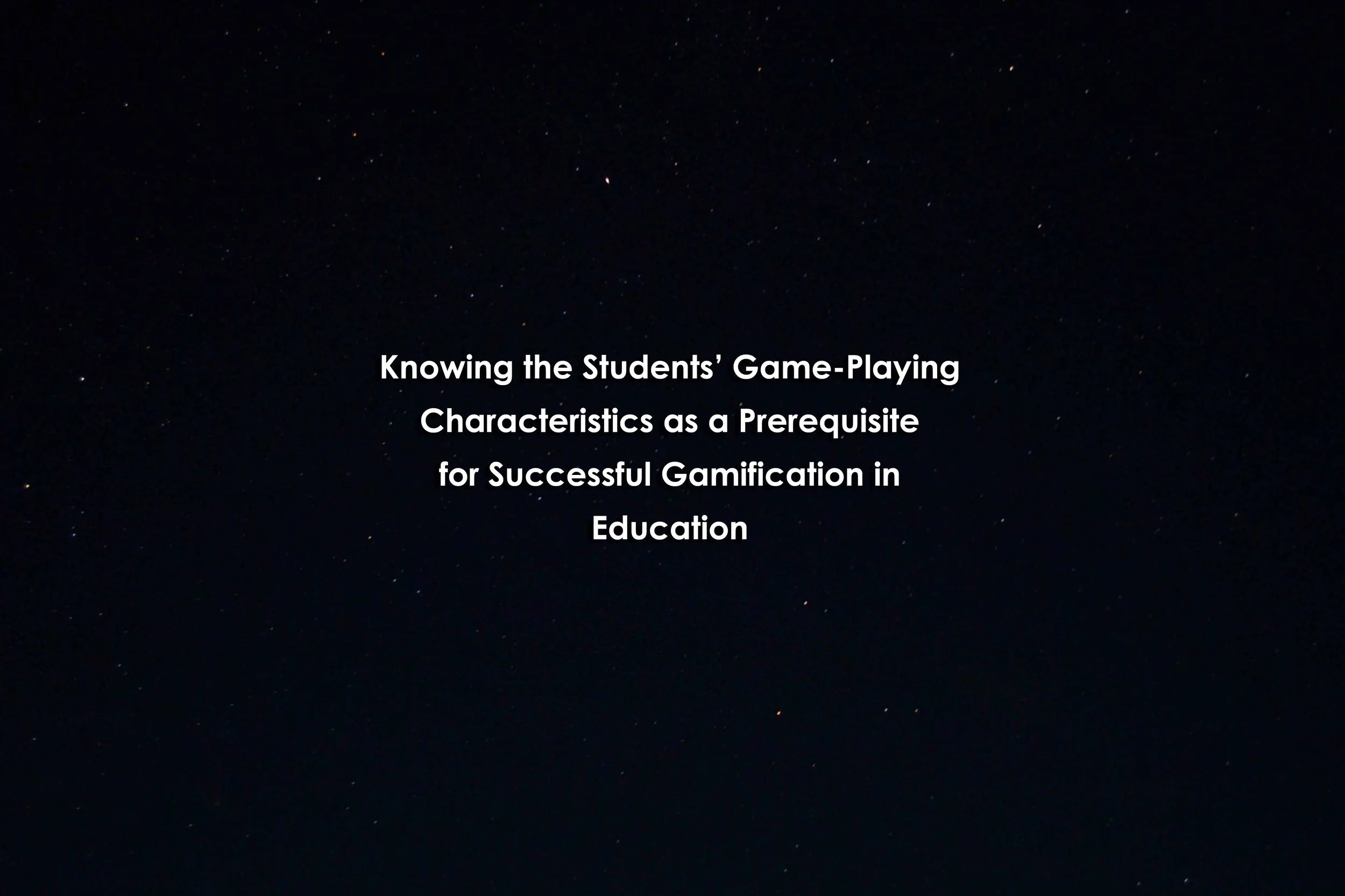Knowing the Students’ Game-Playing Characteristics as a Prerequisite
Knowing the Students’ Game-Playing Characteristics as a Prerequisite
Knowing the Students’ Game-Playing Characteristics as a Prerequisite
for Successful Gamification in Education
Nevena Jaftha, Flavia Cristina Morone Pinto, & Tatjana Chircop
Abstract
Gamification is only successful if the key elements are joint and run in unity in favour of the user, and knowing game-playing characteristics of target audience is of utmost importance. This study aimed to identify the students' game-playing preferences and styles, considering the opportunity to implement gamification in education in a personalized way. A descriptive-normative survey involved 74 students of a Vocational Education and Training (VET) Institution, chosen by convenience sampling. The target audience of the research was students at the MQF introductory level A and B (17.6%), at MQF level 2 (40.5%) and at MQF level 3 (41.91%). Participants received a questionnaire about game-playing preferences and styles. Students’ average age was 18.31±0.776 years, 70.3% males and 29.7% females (p=0.001), and the majority were Maltese (79.7%; p=0.000). Most of the participants (72.9%) preferred digital games. Regarding the style of playing, students reported preferring a mix of single-player games and cooperative games (38.7%). The students responded that, when they re-play a game, they do so “because it is interesting” or they “like it” (15.82%) and most of them (64%) reported they liked the idea of learning through games. Thus, according to these findings, the students prefer to play in cooperative digital game contexts and most of them like the idea of learning through games because they believe that they can learn and have fun at the same time.
Reference
Jaftha, N., Pinto, F. C. M., & Chircop, T. (2020). Knowing the Students’ Game-Playing Characteristics as a Prerequisite for Successful Gamification in Education. Journal of Education and Development, 4(3), 73. http://journal.julypress.com/index.php/jed/article/viewFile/829/604
Keywords
game elements, serious games, educational games, learning games, student perceptions

